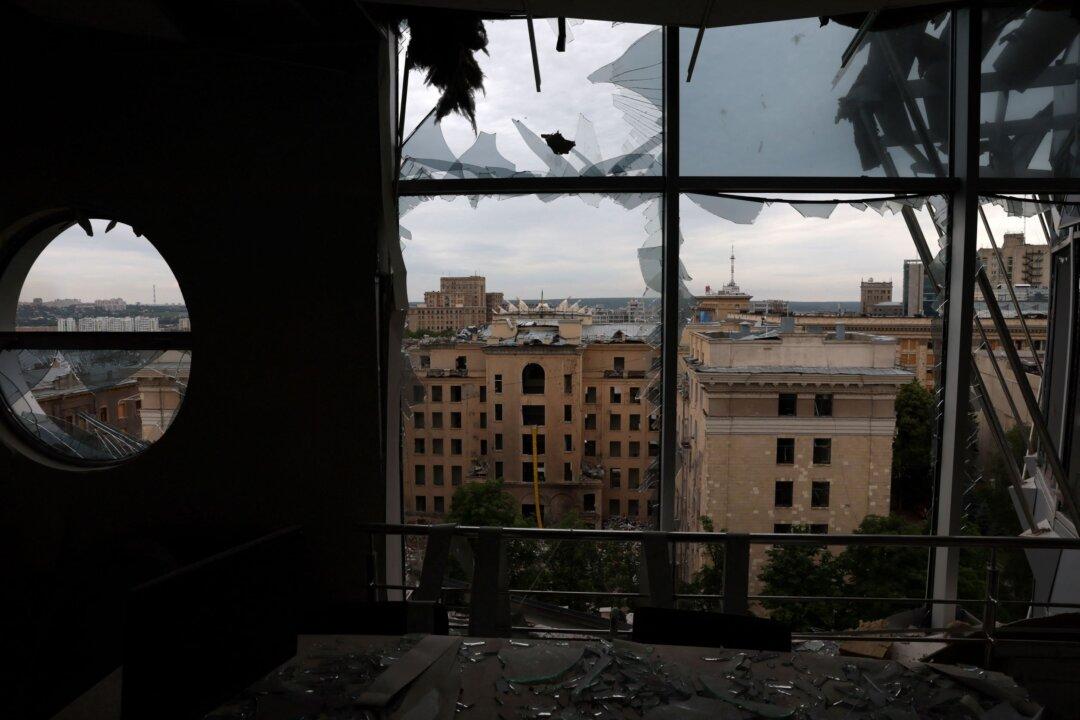KYIV—Russian missiles rained down across Ukraine on Saturday, hitting military facilities in the west and the north as well as a southern city.
Russian artillery and air strikes pounded the twin cities of Sievierodonetsk and Lysychansk in the eastern Luhansk region on Friday, smashing into a chemical plant where hundreds of civilians were said to be trapped, a Ukrainian official said on Saturday.





